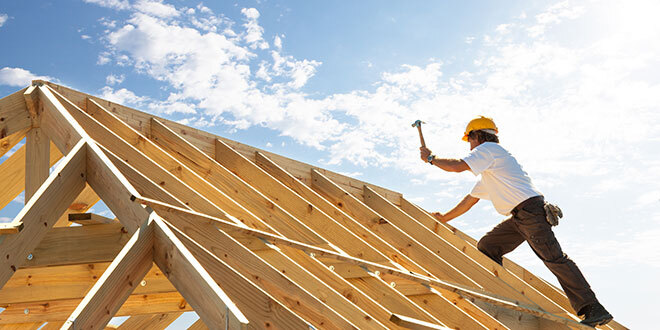For the last five years, homebuilders have been on a wild ride with fluctuating interest rates, upheaval in building material prices and shifts in priorities for homeowners. As the industry continues to evolve to meet those challenges, here are the top five trends shaping the homebuilding industry in 2024.
- Smaller home sizes. Homeowners are opting for smaller homes after wanting extra space during the pandemic.
According to data from the November 2023 update of the U.S. Census Bureau and U.S. Department of Housing and Urban Development’s New Residential Construction, which gathers quarterly and annual estimates of housing units started and completed by purpose and design, new single-family homes averaged 2,430 square feet in the third quarter of 2023. That number is down from an average of 2,485 square feet in 2022 and 2,532 square feet in 2021.
- Sustainable homes. The eco-friendly movement isn’t going anywhere, and homeowners desire more sustainable and green options in their homes.
In 2023, Payless Power, an energy company in Texas, surveyed 1,000 homeowners across the U.S. regarding their approach to living more sustainability and creating a more eco-conscious home. According to its findings published in the January 2023 article “Going Green: How Americans Are Making Their Homes Eco-Friendly” on paylesspower.com, homeowners are willing to spend an additional $50,000 over budget for an eco-friendly home that reduces its carbon footprint and energy needs.
- Multigenerational living. Along with wanting smaller homes, U.S. homeowners are increasing the number of generations living under one roof. Multigenerational living is not only a cultural norm for some groups but also offers a solution for high interest rates and low home inventory. The Pew Research Center’s Financial Issues Top the List of Reasons U.S. Adults Live in Multigenerational Homes, an analysis of data published in March 2022 using the Current Population Survey Annual Social and Economic Supplement, found the number of U.S. citizens in multigenerational homes has doubled, from 7% in 1971 to 18% in 2021.
- Accessibility. There is an increased need for accessibility in new and existing homes in 2024 and beyond. During a hearing on “Laying the Foundation: Housing Accessibility and Affordability for Older Adults and People with Disabilities” before the Senate Special Committee on Aging in July 2023, Pennsylvania’s Democratic Sen. Bob Casey cited in his opening statement that 26% of Americans have a disability, and by 2030, 20% of Americans will be over the age of 65. Currently, fewer than 5% of homes are accessible.
The homebuilding industry in 2024 is navigating a market shaped by dynamic forces. Current trends are redefining the way homes are built and lived in, and the industry must remain agile and innovative, embracing change as an opportunity for growth and transformation.
By prioritizing sustainability, inclusivity and adaptability, homebuilders can navigate the complexities of the current market while creating homes that reflect the diverse needs of homeowners.
 Hardware Retailing The Industry's Source for Insights and Information
Hardware Retailing The Industry's Source for Insights and Information








